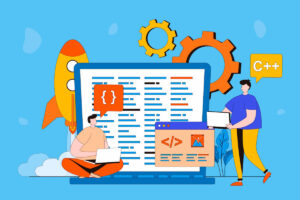PHP remains a popular server-aspect scripting language used extensively for web improvement. With the regular evolution of era, optimizing PHP code is paramount for builders who intention to construct excessive-overall performance net applications. In this in-intensity guide, we expound on diverse advanced strategies that may dramatically refine the efficiency and speed of your PHP code. We will cowl topics including JIT compilation, code refactoring, data caching techniques, optimizing database interactions, asynchronous processing, and first-rate-tuning PHP configuration. By the stop of this guide, you will have complete know-how of a way to maximize your PHP code’s overall performance and create robust programs which could cope with heavy visitors readily.
Understanding PHP Optimization
Optimization of PHP code refers to tweaking and modifying the code to increase its efficiency and performance. By optimizing, builders can lessen the execution time of scripts, decrease the reminiscence usage, and enhance response instances, all of that are important for a seamless person experience. The effect of optimized PHP code on net utility performance can’t be overstated; it ends in faster web page hundreds, the potential to serve extra concurrent users, and a standard better performance that could considerably affect consumer retention and SEO rankings.
Benchmarking PHP performance is an vital step inside the optimization system. Tools consisting of Xdebug, Blackfire.Io, and New Relic provide targeted insights into code conduct and efficiency, permitting developers to establish a overall performance baseline and discover bottlenecks.
With such portent analytics, developers can track a page load time a site that loads in 1 second has an e-commerce conversion rate 2.5x higher than a site that loads in 5 seconds.
Benchmarking PHP Performance Tools
When it involves measuring PHP code performance, leveraging the right benchmarking tools is prime to acquiring accurate insights. Developers use quite a few performance tools especially tailor-made for PHP programs, that assist in organizing a baseline for further optimization efforts. This gear can offer metrics on script execution time, reminiscence intake, and CPU utilization, amongst different essential factors.
Profiling PHP Applications
Profiling is an important exercise in information how PHP code behaves at runtime. It permit developers to see which features are called, how regularly they are invoked, and the quantity of sources each consumes. By introducing profiling early within the development cycle, bottlenecks may be detected and addressed extra correctly.
Introduction to Profiling PHP Code
At its core, profiling PHP code involves collecting data that describes the dynamics of the code under various conditions. Profiling provides a microscopic view of the code’s execution, offering the ability to drill down to line-by-line performance.
Best Profiling Tools Available for PHP Developers
For PHP developers, there is a selection of best-in-class profiling tools available, like Xdebug, Zend’s Z-Ray, Tideways, and Blackfire.io. These tools capture detailed execution paths and resource usage, enabling developers to fine-tune PHP applications for optimal performance.
Analyzing Profiling Data to Pinpoint Bottlenecks
Once the information is gathered, the challenge lies in analyzing this information accurately. Developers must sift through profiling statistics to perceive styles, recognize the execution glide, and spotlight the code regions that aren’t performing well. By targeting these hotspots, builders can refactor inefficient PHP code, optimize resource-in depth functions, and streamline database queries to seriously enhance utility performance.
Efficient Use of PHP Built-in Functions
PHP comes with a wealth of built-in functions designed to tackle common tasks more efficiently than custom-written code.
Overview of Neglected PHP Built-in Functions
Often overshadowed by the allure of crafting custom solutions, many PHP built-in functions sit underutilized, despite their ability to dramatically improve the efficiency of PHP programs. From array manipulation with functions like array_filter() and array_map() to string operations using strpos() or str_replace(), these native tools are honed to execute tasks with precision and speed.
Replacing Common Custom Functions
Developers can improve PHP script efficiency by replacing commonly used custom functions with built-in counterparts. This simple step reduces execution time and enhances overall performance.
Opcode Caching
Opcode caching is a powerful tool in optimizing PHP code performance by storing precompiled script bytecode in shared memory.
The Concept and Configuration of OpCache
OpCache improves PHP performance by storing precompiled script bytecode in the cache, thus eliminating the need for PHP to load and parse scripts on each request. This section will delve into configuring OpCache to tap into these performance gains.
Utilizing Just-In-Time (JIT) Compilation
PHP 8 introduces Just-In-Time (JIT) compilation that has the potential to transform PHP performance.
JIT Compilation in PHP 8
JIT compilation dramatically enhances the execution of PHP code by compiling it into system language at runtime. Here, we can discover how this option may be activated and utilized in PHP 8 to optimize your PHP code.
Code Refactoring and Other Best Practices
Refactoring is a critical element in writing optimized code, and there are several nice practices that PHP developers need to employ.
The Role of Refactoring
Through large refactoring, PHP code can grow to be more readable, maintainable, and efficient. We’ll speak about the necessity of regular code reviews and refactoring classes.
Coding Practices for Optimization
This section will provide insights on quality coding practices. It includes the usage of proper algorithms and record systems, writing easy and understandable code, and adhering to coding requirements. These practices contribute to optimized PHP code.
Data Caching Strategies
Effective data caching can significantly improve the responsiveness of PHP applications by reducing the need to fetch data on each request.
PHP Caching Techniques
We’ll look into various PHP caching strategies, from simple file-based caching to more advanced techniques like opcode caching, and how to apply them to optimize PHP code.
Implementing Caching Libraries
Learn how to implement existing PHP caching libraries and analyze their impact on your web application’s performance.
Optimizing Database Interactions
Efficient database interaction is key to the performance of PHP applications that rely heavily on data transactions.
Streamlining PHP and Database Communication
We’ll cover advanced techniques like using persistent connections and properly indexing databases to streamline interactions between PHP and the underlying database.
Using PHP Data Objects (PDO)
PDO provides a data-access abstraction layer, which allows for a consistent method of access to multiple databases. We’ll explain the advantages of PDO and how to use it to optimize PHP code.
Asynchronous Processing
Asynchronous processing can greatly improve PHP software performance by permitting multiple approaches to arise simultaneously.
Understanding Asynchronous PHP Requests
Introducing the idea of asynchronous processing in PHP and discussing the blessings and challenges related to it.
Tools for Asynchronous Behavior
We’ll look at tools and libraries that can be harnessed to obtain asynchronous processing in PHP, thereby optimizing PHP code and improving utility throughput.
Fine-Tuning PHP Configuration
The PHP configuration file (php.ini) contains a range of settings that can be tuned for performance optimization.
Important php.ini Settings
This phase highlights some critical php.ini settings that can have a significant impact on the performance of your PHP code.
Environment-Specific Configuration
We will speak a way to best-music PHP settings for specific environments, including improvement, checking out, and manufacturing, to make sure most reliable performance.
Conclusion
Throughout this manual, we’ve included a spectrum of superior techniques to optimize PHP code for performance. It is important to maintain a subculture of performance in PHP development groups to ensure that applications run at their pleasant. In the ever-evolving global of net improvement, staying updated with the modern PHP advancements and continuously improving your codebase is crucial. With the proper gear, techniques, and mindset, you may ensure that your PHP programs are fast, green, and scalable. Reach out to us if you have any questions or need assist imposing those techniques to your PHP projects. Keep optimizing!












+ There are no comments
Add yours